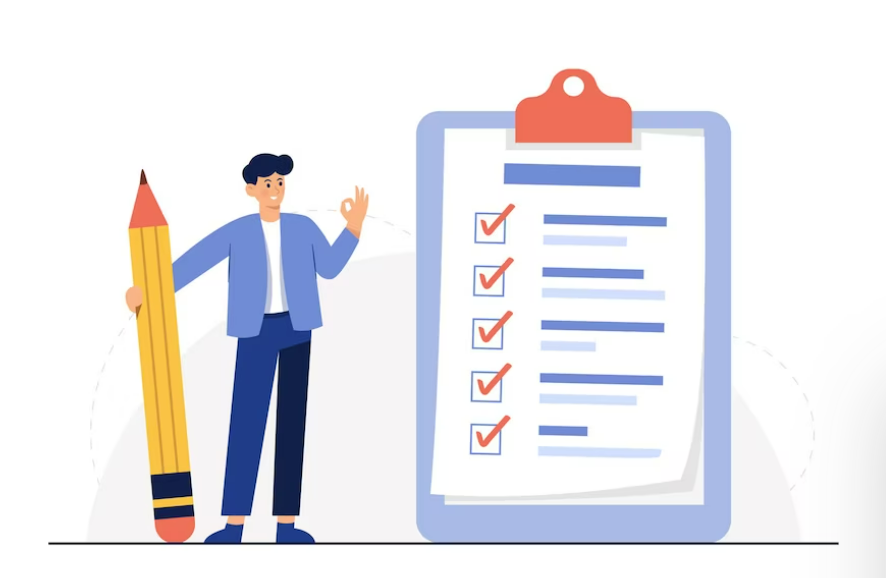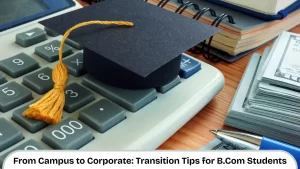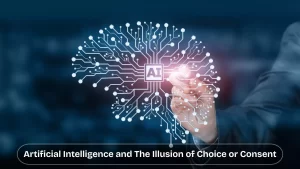The Master of Computer Applications (MCA) program at SMS Varanasi has been given the stamp of approval by the AICTE, Ministry of HRD, Govt. of India, and is affiliated with Dr. A.P.J. Abdul Kalam University, Lucknow. Since its founding in 2013, the program has welcomed 60 students each year, and these budding computer experts are set on a full-time, three-year journey to hone their skills.
To qualify for this opportunity, candidates must hold a Bachelor’s degree in any discipline that includes Mathematics at either the 10+2 or graduate level. The degree must have been completed in at least three years, and a score of at least 50% is required (45% for those in reserved categories).
Let’s take a look at how the MCA curriculum at SMS Varanasi paves the way of success for its graduates:
First Semester

During the first semester, all students must complete a series of fundamental courses. These include:
- Emerging Information Technologies: This course covers the basics of emerging technologies and trends in the industry, including Big Data, Cloud Computing and Mobile Application Development. Students learn about the various technologies and how to apply them in their work.
- Problem-Solving using C: In this course, MCA students gain a solid grasp of the C programming language and how to use it to solve problems. This course also deals with object-oriented approaches in software development and design issues.
- Principles of Management & Communication: This course focuses on communication skills as well as management principles and practices. Students learn the basics of managerial decision-making, problem-solving and communication.
- Discrete Mathematics: Discrete mathematics is crucial in the development of computer applications, and this course covers topics such as sets, graphs, logic, algorithms and boolean algebra. MCA students gain a solid foundation in the basics of discrete mathematics and its applications.
- Computer Organization: This course provides an overview of the various components and architectures of a computer system. It also covers topics such as memory organization, instruction sets and microprogramming.
Second Semester

During the second semester, students will dive deeper into their studies and gain skills like:
- Theory of Automata & Formal Languages: This course covers the basics of automata theory, formal languages, and their applications in software engineering. Students learn about finite state machines, Turing Machines and Chomsky Hierarchy.
- Object-Oriented Programming (OOP): This course covers the basics like classes, objects and interfaces. Students also learn how to use OOP principles and techniques to develop high-quality software applications.
- Database Management Systems (DBMS): This course covers the concepts of database management systems, including data models, query languages and storage structures. Students learn to design efficient databases and understand how DBMSs interact with software applications.
- Data Structures using C: This course builds on the problem-solving skills learned in the first semester and covers topics such as linked lists, stacks and queues. Students also learn how to use data structures for efficient programming.
Third Semester

The third semester allows students to bring together their knowledge and expertise in the areas of:
- Design & Analysis of Algorithms: This course covers the basics of algorithms, including their design and analysis. Students learn about searching and sorting techniques, graph algorithms, dynamic programming and NP-completeness.
- Web Technologies: This course covers the basics of developing web applications using HTML, CSS, JavaScript and AJAX. Students learn about client-server architectures and how to develop dynamic user interfaces for web applications.
- Computer Networks: This course introduces students to the basics of networking, including LAN/WAN architectures and protocols. Students learn about Ethernet, TCP/IP and routing algorithms.
The remaining courses in the first semester are largely electives that can be chosen based on student interests. Students can pursue two elective subjects this year, which may include one of the following:
- Cloud Computing: This course covers the basics of cloud computing and its various services. Students learn about Infrastructure-as-a-Service, Platform-as-a-Service and Software-as-a-Service models. With this elective, students can make a career in the cloud computing industry.
- Data Warehousing & Data Mining: This course covers the basics of data mining and its various techniques. Students learn about algorithms for analyzing large datasets, including decision trees and neural networks. Careers like data analysts and data scientists are possible with this elective.
- Cryptography & Network Security: This course covers the basics of cryptography and network security. Students learn about encryption techniques, authentication protocols and access control mechanisms. It can be a good course for those who want to become security analysts.

And one of the following:
- Big Data: In the Big Data course, students learn about the different technologies used for analyzing large datasets. They learn about Hadoop, NoSQL databases and other tools for data storage and processing. It is a good choice for MCA graduates who want to pursue a career in analytics.
- Data Analytics: Data Analytics course enables students to learn about the various techniques for analyzing data. They gain exposure to machine learning algorithms, predictive modelling and other methods used to extract meaningful insights from data. This is the best course for students aiming for a career in analytics.
- Privacy & Security in Online Social Media: A crucial course in today’s times, this covers the basics of protecting user privacy and data security in online social networks. Students learn about authentication protocols and access control mechanisms for safeguarding user data. They also gain an understanding of the legal implications of social media data. Students should choose this course if they are interested in a career in privacy and security.
Fourth Semester

During the fourth semester, students will take on more advanced projects and courses including:
- Artificial Intelligence: The fundamentals of artificial intelligence and its various algorithms include neural networks, genetic algorithms, deep learning and natural language processing. MCA students learn about the applications of these algorithms in various fields.
- Software Engineering: In the SE course, students learn the basics of software engineering and its various processes. They gain an understanding of system design principles and software development life cycle models.
Students pursue two elective subjects this year too, which may include one of the following:
- Block-Chain Architecture: In this course, students learn about distributed ledger technologies, consensus algorithms, cryptography and smart contract programming. This course enables students to create and deploy decentralized applications.
- Data Science: This course builds on what students have learnt in the earlier semesters. It deep dives into data analysis, machine learning algorithms and predictive modelling. This is a must-have course for students wishing to pursue a career in data science.
- Mobile Computing: Another important course in today’s times, this covers the development of mobile applications for both iOS and Android platforms. Students also gain familiarity with common frameworks such as React Native and Flutter. This is an excellent choice for those interested in a career in app development.
And one of the following:
- Internet of Things: With the growth of IoT devices, this course is a must for students looking to gain knowledge about connected device networks. Students learn about the different protocols used for communication between devices and the security challenges associated with it. Good for careers in IoT and embedded systems.
- Modeling & Simulation: This course helps students gain a better understanding of system behavior, by simulating components and analyzing their interactions. It gives them an opportunity to design experiments and learn how to interpret data collected from simulations. This course is good for students who are aiming to pursue a career in research and development, architecture, the automobile industry, the fashion industry, and more.
- Machine Learning: This advanced ML course covers a comprehensive range of topics such as supervised and unsupervised learning, deep learning and neural networks. Students learn how to apply ML algorithms to different datasets in order to gain valuable insights and make better decisions. This is a great option for those aiming for a career in analytics or data science.
In each semester, students also take lab classes to gain practical knowledge and experience and do projects as a part of their coursework.
Conclusion

The Master of Computer Applications program at SMS Varanasi is an intensive three-year program that provides students with the necessary knowledge and skills to build a successful career in technology.
Students gain exposure to a range of topics such as software engineering, artificial intelligence, data science, mobile computing, the internet of things, modelling and simulation and machine learning. They also get to work on projects and lab classes to gain practical knowledge.
All in all, the MCA program at SMS Varanasi is a great choice for those looking to pursue a career in technology. So if you are considering taking up the program, we encourage you to do it!
PS:
With our convenient online application process and simple payment procedure, you can secure your spot hassle-free. To complete the enrollment process, you’ll need to pass one of the following exams:
- CUET (Central Universities Entrance Test)
- UPSEE (Uttar Pradesh State Entrance Exam)
- SMS Online Test
You will also have to undergo a personal interview.
Get ready to take the first step toward your future career today!




